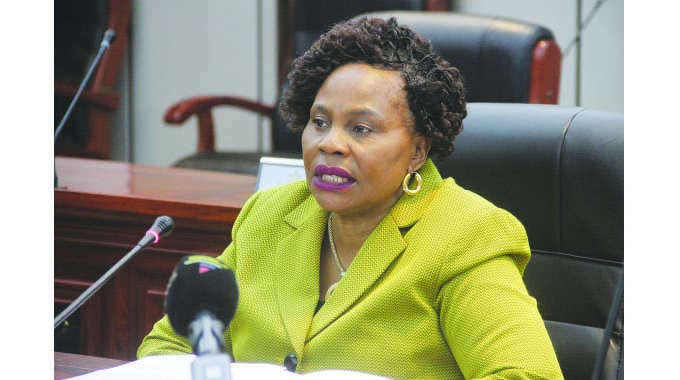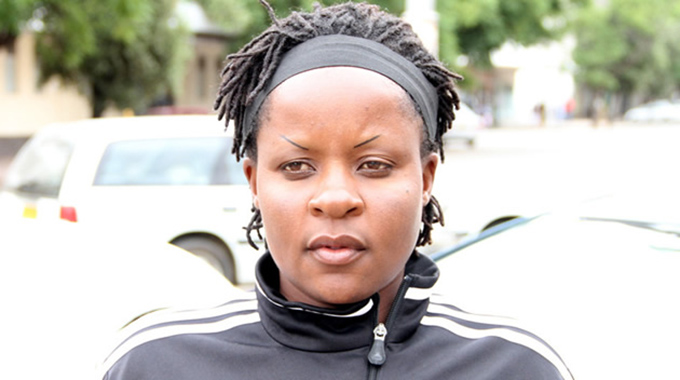Of the World Press Freedom Day and an anti-media opposition

Nobleman Runyanga
Correspondent
As Zimbabweans commemorated this year’s World Press Freedom Day this month, one got readily reminded of a number of media issues such as the opening of the media space, which the new dispensation has been seized with since November 2017.
One remembered the six television stations and numerous community radio stations which Government licensed in October last year.
One also remembered how the Minister of Information, Publicity and Broadcasting Services, Monica Mutsvangwa, is regarded by media players as more proactive and open compared to her predecessors under the previous administration.
The fact that she holds post-Cabinet briefs with journalists after Cabinet meetings every Tuesday, which was never done during the previous dispensation, points to a refreshingly different media era in Zimbabwe.
This contrasts sharply with the early 2000s when Professor Jonathan Moyo, instead of supporting the media to play its role as the fourth estate, played the hatchet man against media players.
Many will remember how he ordered the closure of the Daily News in September 2003.
It was during his tenure that the same media house’s printing press was bombed in January 2001 in Harare and its Bulawayo offices were petrol-bombed in February 2002.
The day also brought to mind the opposition MDC in its various factions and formations and their demand for what they term electoral reforms.
One of the demands under the so-called reforms is an aspect that the MDC Alliance describes as media reform.
The Western-funded and run opposition outfit is demanding that during election seasons public media houses such as The Herald and the Zimbabwe Broadcasting Corporation (ZBC) should cover its activities.
The opposition political outfit seems to conveniently forget is that media houses follow news and news makers and that they do not require a statutory instrument or Act of Parliament to force them to cover particular political parties or other news makers.
After all, the public media has always covered the MDC Alliance and its officials.
What has been unacceptable in a democracy is the opposition party officials’ demand for certain angles to be projected when the media covers them.
This obviously is counter to media freedom, which the world commemorated a few days ago.
Interestingly, since August 2018, MDC Alliance leader, Nelson Chamisa, claims that President Mnangagwa rigged the 2018 presidential poll.
He has, however, failed to prove his claims with irrefutable evidence, even when he approached the Constitutional Court.
Yet Chamisa and his supporters routinely and treasonously claim that he is the president of Zimbabwe.
His political immaturity comes to the fore when he mounts public pedestals to demand electoral reforms from a President and Government that he has refused to recognise for nearly three years.
One cannot have their cake and eat it too.
Chamisa and his faction cannot falsely accuse President Mnangagwa of electoral theft, but still demand electoral reforms from him. That is political confusion writ large.
The way his faction members behave when they see media personnel on duty at its gatherings shows that the opposition is either confused or is not yet sure of what it wants.
Chamisa claims that his faction does not get enough of public media coverage, but his faction members show that they are undeserving of not only public media’s attention, but that of any other media house from anywhere in the world.
This is because in their unchecked violent nature, MDC Alliance activists do not make a distinction between members of the media and those of other factions of the party to which they regularly mete out unrestrained violence.
On February 10 2020, ZBC camera person, Providence Maranelli, was assaulted by MDC-Alliance security details in Gwanda, Matabeleland South Province, after Chamisa had addressed a meeting, for covering the event.
Chamisa and his faction have been crying loud and long for public media coverage, but his thugs demonstrated that they do not need it.
They showed that they are a danger to the journalistic profession. Even in war zones journalists are respected.
The MDC Alliance’s demand for public media coverage only gives one the impression that the faction is happy with the media coverage that it is getting from private media players.
This, however, seems not to be the case. It appears that the MDC Alliance yobs do not care whether a journalist is from a private or public media house.
On September 1 2019, an unidentified MDC Alliance security personnel grabbed and confiscated a Canon 6D digital camera belonging to local journalist Ari Goldstein during the party’s rally in Glen View.
Goldstein is the founding journalist of online publication, State of the Nation.
The MDC Alliance security team harassed the journalist as he covered the rally. It was not clear why the MDC Alliance did not want Goldstein to cover the meeting.
About five months later, on January 21 2020, the faction’s violent security youths were at it again.
This time around they harassed Sly Media Productions scribe, Robert Tapfumaneyi, while he was covering the faction’s meeting at Stodart Hall in Mbare in Harare.
This happened while Chamisa was addressing a meeting that he termed the State of the Nation and Agenda 2020.
The opposition faction always accuses the public media of publishing negative stories about it, but what had Tapfumaneyi and Goldstein done to merit the terrorist kind of treatment they got at the hands of MDC Alliance faction’s so-called security personnel?
Even if the public media publishes negative stories about the MDC Alliance, it still remains unacceptable to assault journalists.
It seems that the faction only wishes to deal with rogue online media houses such as ZimEye, which addresses Chamisa as “President Chamisa”, despite him losing the 2018 elections.
Even some media titles which the MDC-Alliance projected as under its belt have been receiving quite some flak on social media for pointing out the faction’s flaws and shortcomings.
One such newspaper is the Daily News.
As the media month of May continues, the world should know that the MDC Alliance’s calls for media reforms a mere political rallying point.
This is because the party has shown its disdain of the media – both public and private.
The world should know that the opposition presents a graver danger to the local media.
As the media month rolls on, let the world know that in Zimbabwe, the greatest danger that journalists face are the security gangs from the anarchical MDC Alliance faction.









Comments